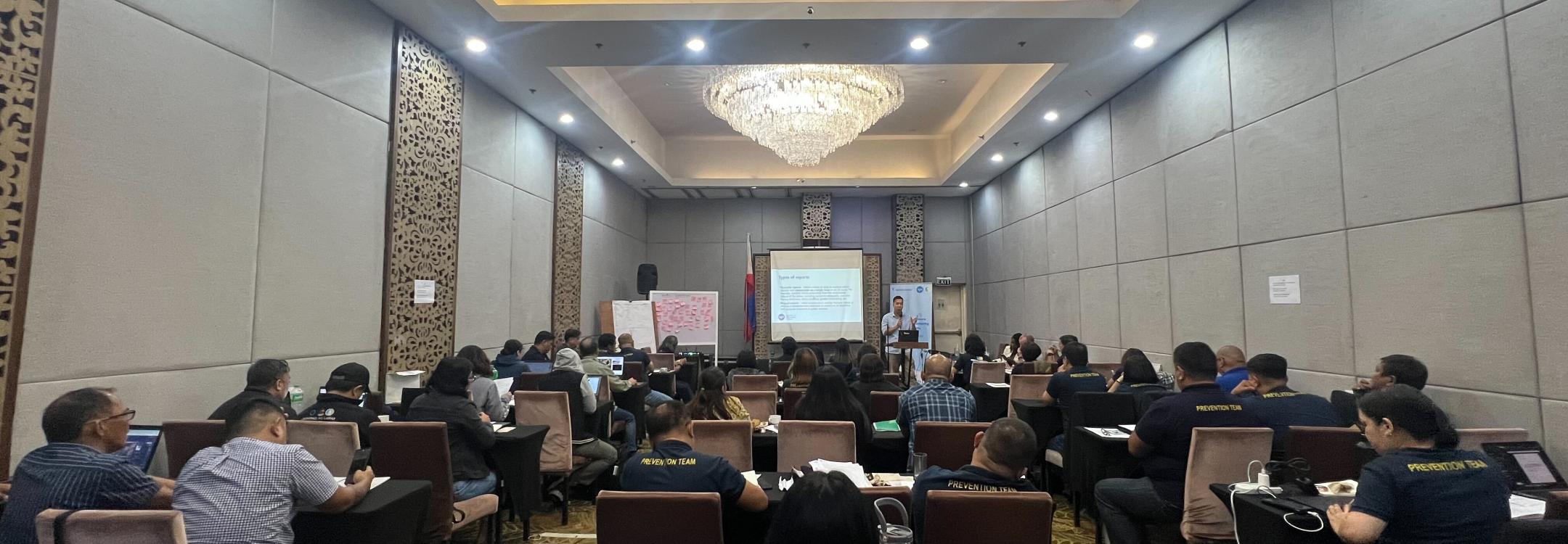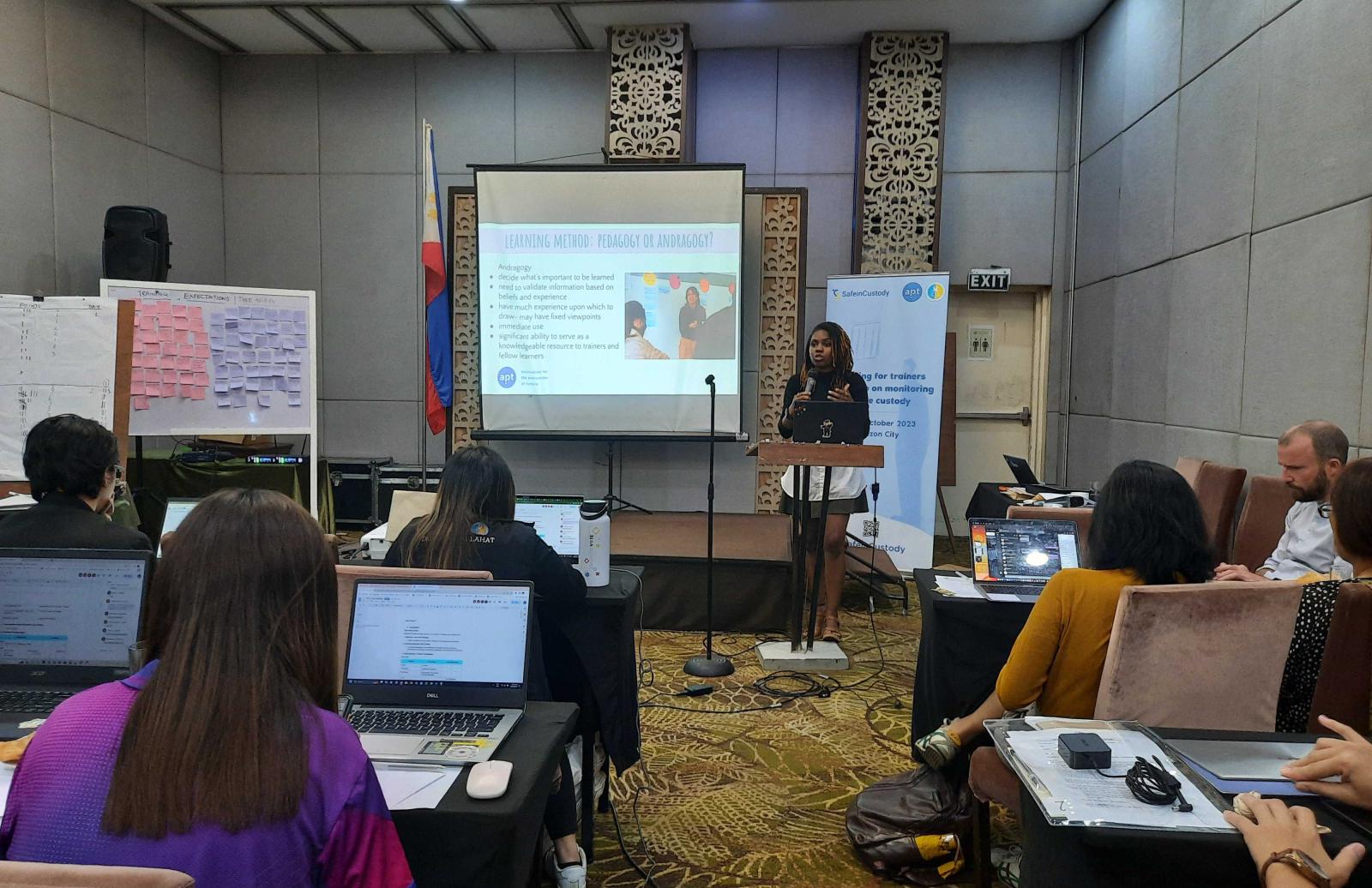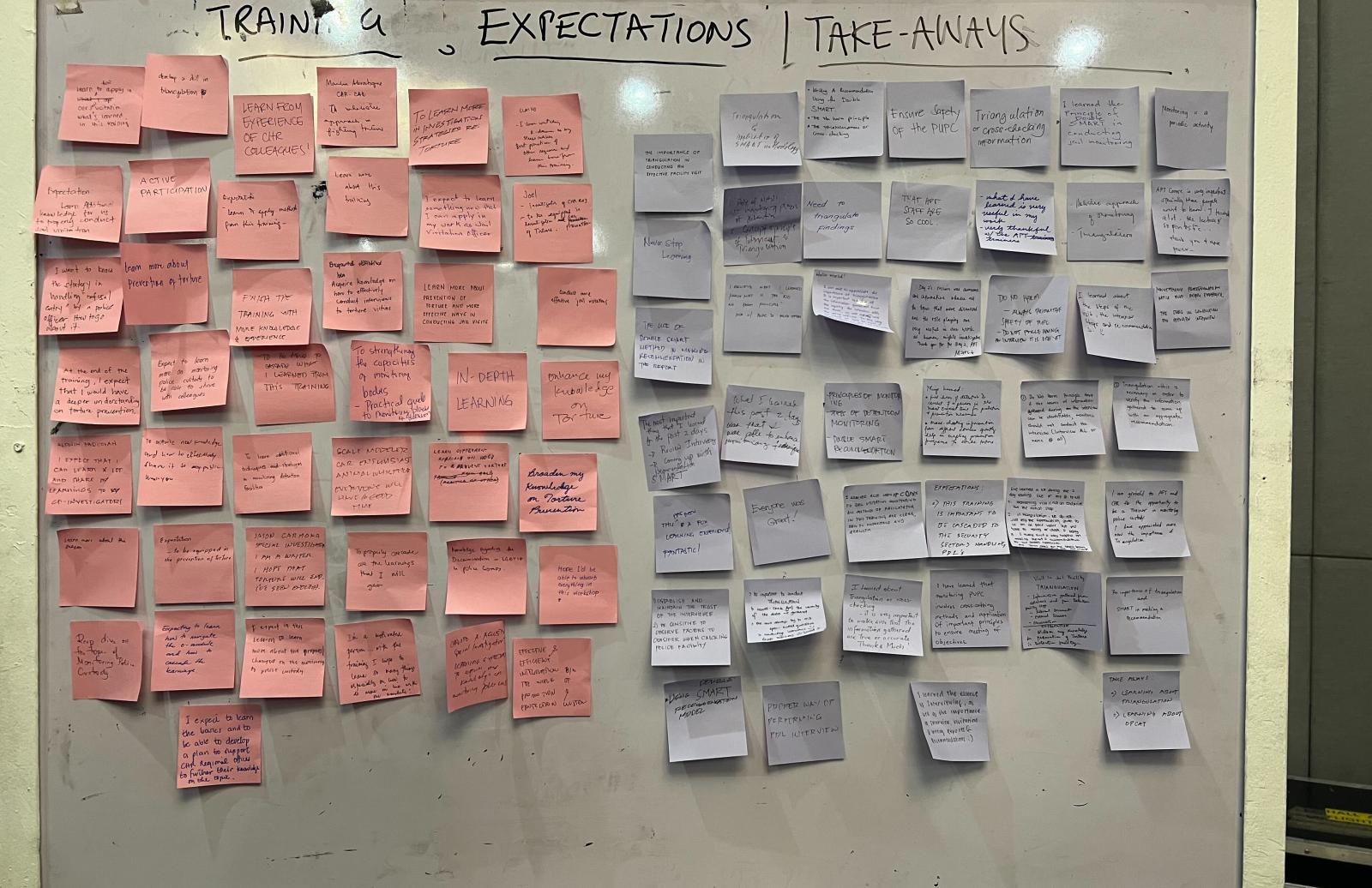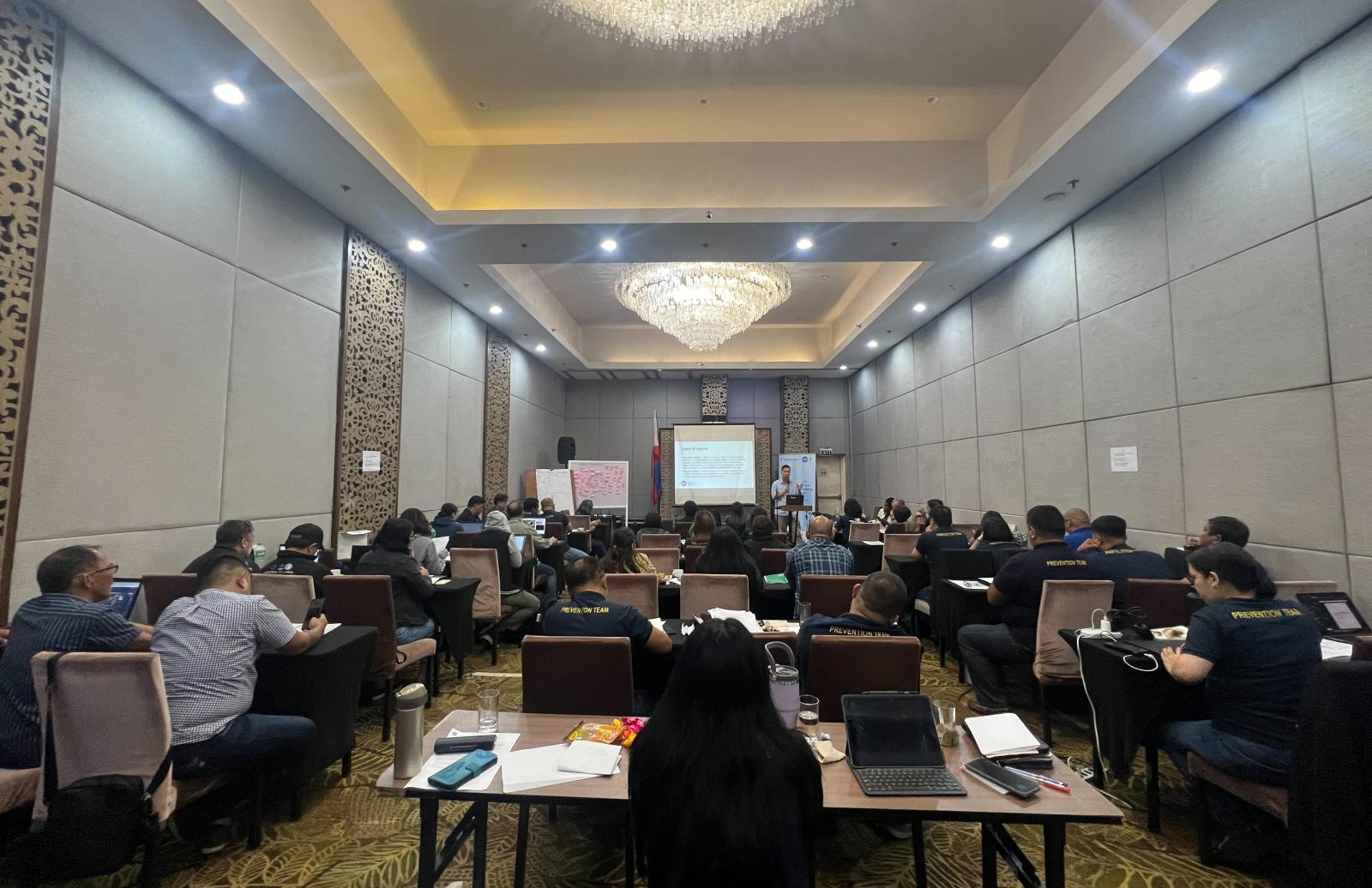
The Philippines ratified the Optional Protocol to the Convention against Torture (OPCAT) in 2012, with the Commission on Human Rights (CHR) acting as the country’s interim National Preventive Mechanism since 2018.
To support their role as an independent oversight body, the APT collaborated with the CHR to developed and run two online courses: NHRIs and the fight against torture and ill-treatment and Police custody monitoring.
The courses provided CHR staff with an introduction to the principles that underpin torture prevention, as well as the key considerations and practical steps involved in monitoring police custodial facilities: establishing a monitoring methodology, monitoring safeguards in police custody, preparing reports and recommendations, and promoting dialogue and cooperation with authorities in following up on the recommendations.
Building on the two online courses, the APT and CHR held a three-day ‘training of trainers’ programme on Police Custody Monitoring in Quezon City for 50 staff members from the CHR’s central and regional offices.
Held from 23-25 October, the training sought to strengthen their knowledge and skills on monitoring police custodial facilities and enhancing their capacity to train their colleagues in the other regions to undertake this work.
The training explored relevant international and regional standards, as well as existing national laws and policies, related to police custody monitoring. Discussions also considered how different CHR departments can support and contribute to torture prevention initiatives.
We were impressed by the dedication of CHR staff to learn how to monitor police custodial facilities and to share those skills and knowledge with their colleagues.”
The training included practical exercises to prepare for, conduct and follow up on visits to police custodial facilities, including methods of interviewing and using ‘double SMART’ methods to develop report recommendations. In addition, tools, techniques and resources for designing and implementing trainings were shared with participants.
The training and the APT Torture Prevention Village – the platform where the online courses were hosted – encouraged participants to share their knowledge and experiences on different topics related to monitoring police custody.
“Case studies that were used during the training enabled them to apply the knowledge from the courses and strengthen their skills in areas such as interviewing and triangulation, which are critical for effective monitoring,” said Jasmine Zik-Ikeorha, APT Senior Adviser, Learning, Development & Outreach.
“At the end, participants told us that they felt more confident and equipped to share their skills and knowledge with colleagues in different regions of the Philippines.”
The #SafeInCustody project is funded by the European Union. This content is the sole responsibility of the APT and does not necessarily reflect the views of the European Union.






